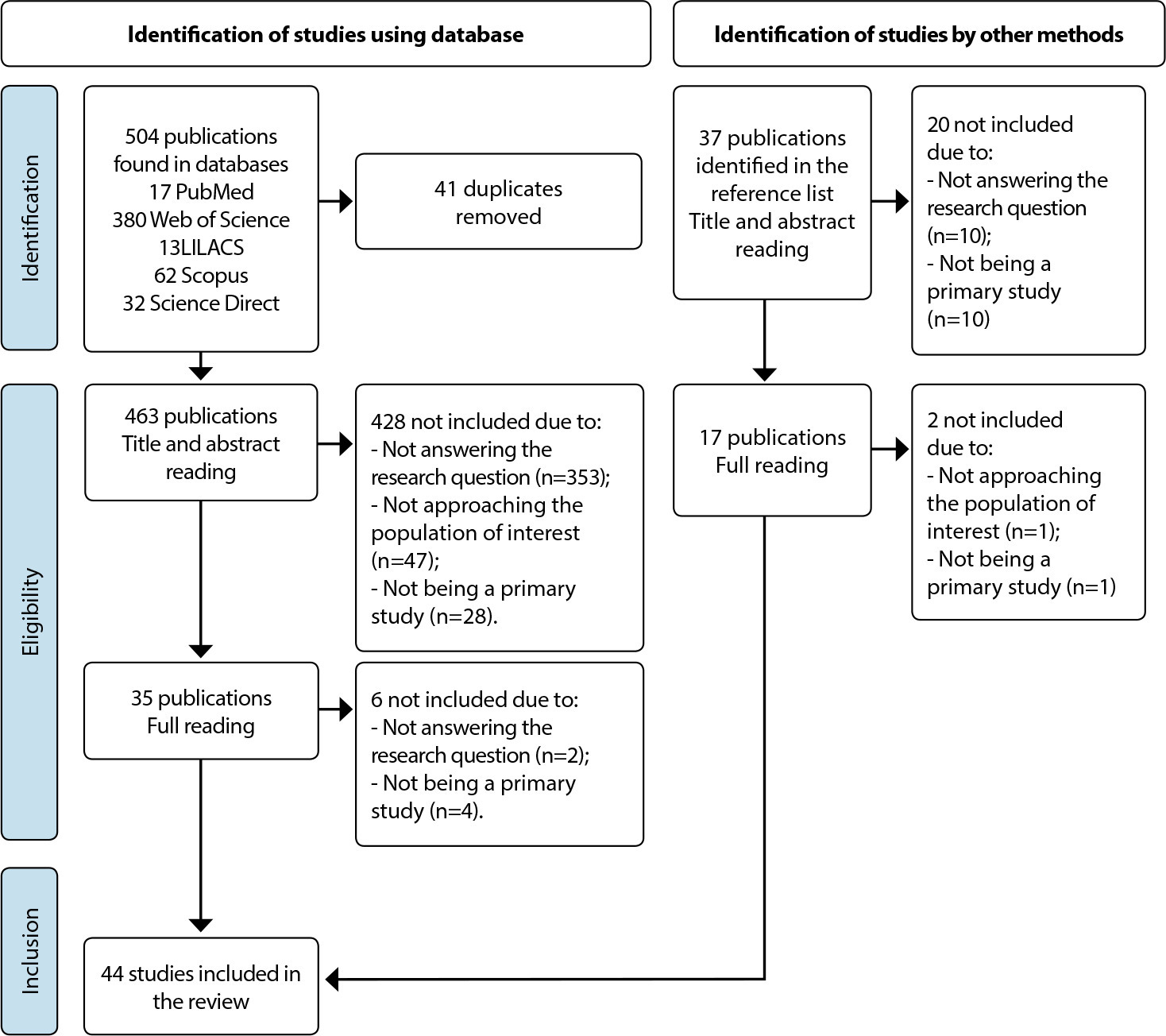-
REVIEW
Health needs of mothers of children with Congenital Zika Syndrome: an integrative review
Revista Brasileira de Enfermagem. 2022;75(Suppl 2):e20210540
04-22-2022
Resumo
REVIEWHealth needs of mothers of children with Congenital Zika Syndrome: an integrative review
Revista Brasileira de Enfermagem. 2022;75(Suppl 2):e20210540
04-22-2022DOI 10.1590/0034-7167-2021-0540
Visualizações0ABSTRACT
Objectives:
to evidence and analyze the health needs of mothers of children with Congenital Zika Syndrome.
Methods:
a total of 44 articles published between October/2015 and March/2021 on PubMed, LILACS, Scopus, Web of Science and Science Direct were included. The RTI bank and CASP score were applied to classify the methodological quality of the studies. Reflective content analysis and Cecílio and Matsumoto’s taxonomy were used for analysis. Visual map was used as a technique for presenting the results.
Results:
mothers need access to social protection, family-centered, multi-professional empathetic monitoring, cultivating bonds and affection by professionals, sharing of care between health network services, strengthening the social support network and fostering coexistence groups between them.
Final Considerations:
intersectoral initiatives must be implemented for better housing conditions, fighting stigma, holding parents accountable and resuming life project.
Palavras-chave: CaregiversCongenital AbnormalitiesHealth Service Needs and DemandMaternal and Child HealthZika Virus InfectionVer mais
-
ORIGINAL ARTICLE
Children with Congenital Zika Syndrome: the complexity of nursing care during hospitalization
Revista Brasileira de Enfermagem. 2021;74(3):e20200122
06-09-2021
Resumo
ORIGINAL ARTICLEChildren with Congenital Zika Syndrome: the complexity of nursing care during hospitalization
Revista Brasileira de Enfermagem. 2021;74(3):e20200122
06-09-2021DOI 10.1590/0034-7167-2020-0122
Visualizações0Ver maisABSTRACT
Objectives:
to classify the degree of dependence on nursing care required by children with Congenital Zika Syndrome during hospitalization and to analyze their complexity.
Methods:
this is a descriptive, observational and quantitative study carried out in a pediatric ward of a public hospital in Rio de Janeiro. Data were collected from hospitalization records between June 2017 and April 2018.
Results:
54% of the population studied showed a degree of dependence equivalent to semi-intensive care. On 37.5% of hospitalization days, patients required non-invasive or invasive mechanical ventilation; 31.5% had spontaneous breathing requiring airway clearance by aspiration and/or oxygen therapy.
Conclusion:
Congenital Zika Syndrome represents a challenge for health professionals due to its uniqueness. In this study, it is expressed by demands for complex and continuous care in hospitalization and in preparation for discharge, requiring semi-intensive nursing care.



